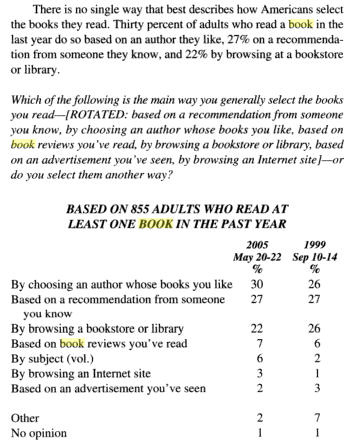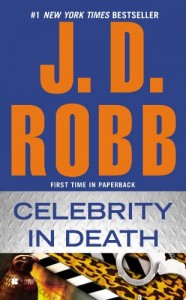From Joe Konrath.
Your ebooks function much like a garden.
One rare occassions, a plant will thrive with little help from you.
Others may whither and die no matter how much help you give them.
But the majority need to be constantly tended. Planted, watered, fertilized, weeded, pruned, mulched, replanted, harvested. In other words, lots of work.
Ebooks aren’t a Mr. Popeill invention where you can set it and forget it. Quite the opposite. You need to pay attention, and keep active, or your garden won’t thrive.
Everyone experiences slow downs in sales. It’s inevitable, and it seems to be cyclical, but not in any sort of way I’ve been able to prodect. Sales seem to rise and fall for reasons unknown.
But if you’re doing what you can to make your books discoverable, you have a better shot at sales than those authors who self-publish then self-ignore.
Here are some tricks to tend to your garden.
1. Change prices. As an indie, this is one of the biggest advantages you have over the legacy industry. You decide what the customer pays, and this is powerful. Don’t be afraid to weild that power by experimenting with prices, both lower and higher.
2. Newsletter. There is no excuse why you don’t have a newsletter. People who sign up are actively looking for your titles. Make them aware a new title exists.
3. Sales. Unlike a change in price, a sale only lasts for a short time. KDP Countdown is what I’m currently using, because it offers 70% royalties when I drop the price. I’ve been pleased with my results.
4. Advertising. Bookbub and Booksends are the ones I use regularly. If you’ve had success with another company, list it in the comments.
He names eleven tips. Link to the rest at JA Konrath’s blog.
This goes back to something Blake Russell said in the myth posts I pointed to a few posts ago. There are some folks who suggest that you can either write the next book or you can promote the current one.
Folks who suggest it’s either/or leave me scratching my head. Why not do both?
Applying to BargainBooksy or BookSends takes less than 30 minutes. Sending a review copy out to a decent review site takes about the same amount of time. If I spend just one hour a week on promotion, I can do all three of those things each month plus something else.
Some folks suggest that promotion doesn’t work when you only have a few books out. And forget about it if you only have one. Promo can’t do anything for you if you only have one book out. At least, not as much as completing the next book can.
Let me ask a question.
If I open a McDonalds down some back road where nobody sees it and nobody travels, do we think that releasing a second McDonalds down some other back road where nobody travels is going to increase sales?
Nobody is going to go down those roads except by accident.
Is that how McDonalds or Walmart or whatever company you want to name built their vast empire? They did it by accident? How about the diner everyone loves in your town? They hid it at the end of a dirt road, told nobody about it, definitely did not put up a sign (good grief, not a sign), and, shazam!–the customers started rolling in?

Some folks say, no, you’re missing the point. The purpose of a promotion is to get people to buy other books in your list at higher prices, so if you don’t have a lot of other books, your promotion can’t do anything for you.
Using loss-leader or sampling strategies with one book to sell others is certainly a smart thing to do. Because it works. With cheeses at Sam’s Club, with books, with a lot of things. But is that really the only thing you’re trying to do?
How about building a base of readers who have some degree of loyalty to your brand? You don’t need ten books to start to do that. You don’t need two books. You can start with one.
I started two series last December—a thriller and an epic fantasy–and (writing gods willing) will be releasing book 2 in the fantasy series this month. Since December I’ve sold close to a thousand in each series. It was easy to see that at least half of my sales, maybe more, came because of some type of promo. I know this because I watched the numbers.
This means I now have hundreds more folks waiting for book two than I did for book one in both series. I’m going to be releasing book two in both series with a bigger customer base than I would have had without promo. Why would I not want to start at a higher level for each successive book?
More readers means more word of mouth. Why wouldn’t I want more word of mouth about my books?
More word of mouth means higher odds that an influencer will hear about, try, like, and then promote my books. In fact, I’m looking at at least double the odds. Somebody remind me: why wouldn’t I want those better odds?
One of the main keys to this business is to get a big enough customer base so that the word of mouth takes on a life of its own. I am building that base more quickly with promo than without. Why would I want to build that base more slowly?
Finally, I have twice the money I would have had otherwise to invest in promo and covers and editing etc. Or just go spend on my wonderful wife and girls. Why wouldn’t I want this revenue?
Traditional publishers have built reader bases for an author one book at a time, often spaced a year apart, for decades. They put money into the promo that works in in-store venues: covers, pre-release reviews and the necessary ARCs, catalogs, a sales team, and co-op visibility in the stores. And while that promo didn’t guarantee anything, it made the odds more likely the book would get readers to sample and build that reader base.
Why shouldn’t we put money into the promo that increases the odds for online stores?
What business out there can’t benefit from good promo?
Of course, the next question is what methods of promo work? There are a many methods that are a waste of money. But not all of them are. I think it’s our job as entrepreneurs to test and find ways that are effective a la The Lean Startup by Eric Ries.
Anyway, Konrath’s advice to not self-ignore, and Blake’s “do both” approach make a lot of sense to me.

















